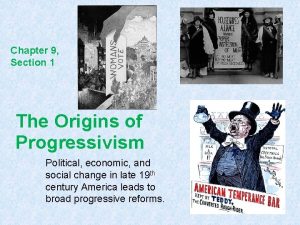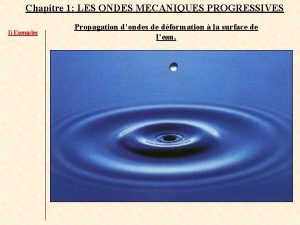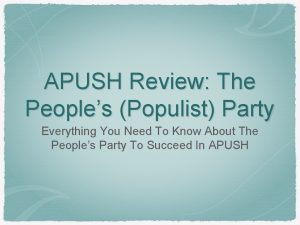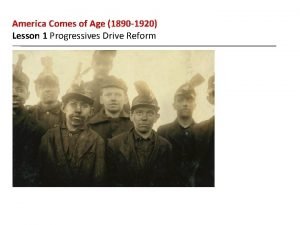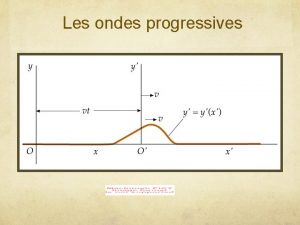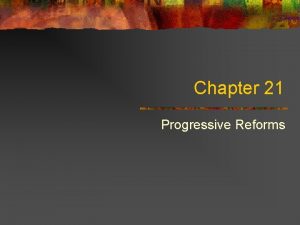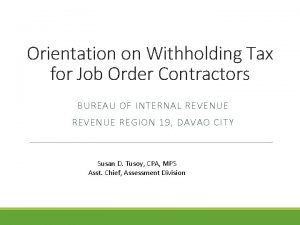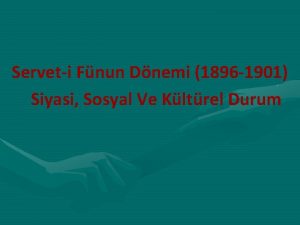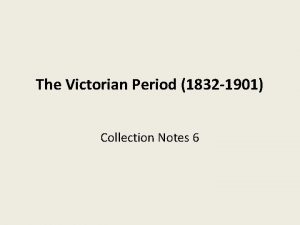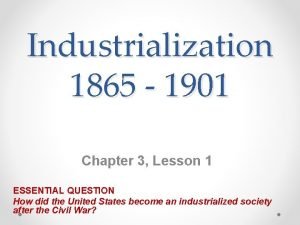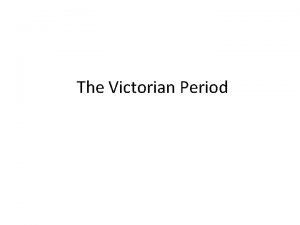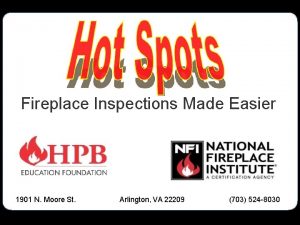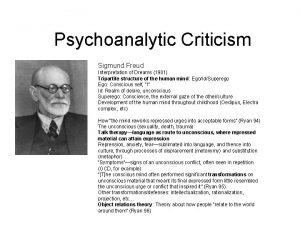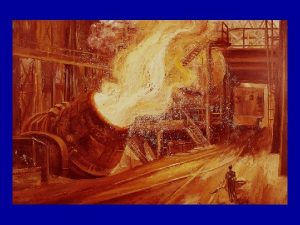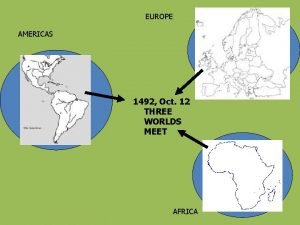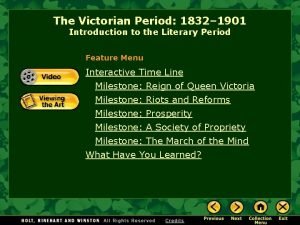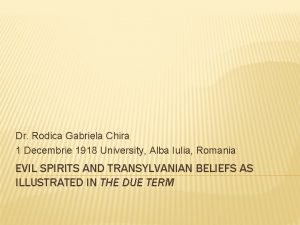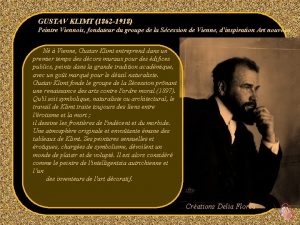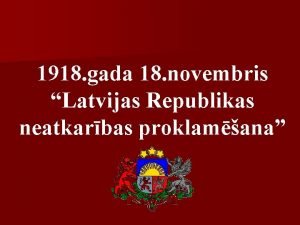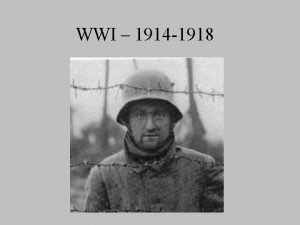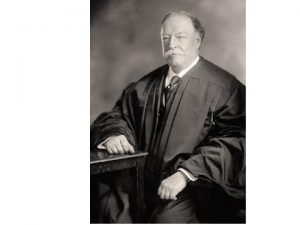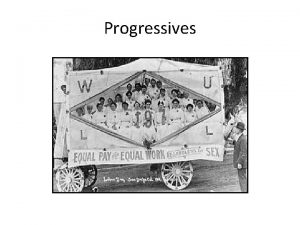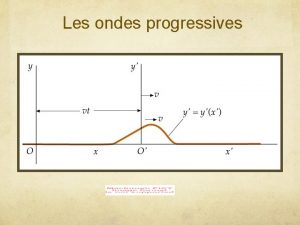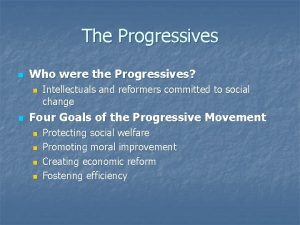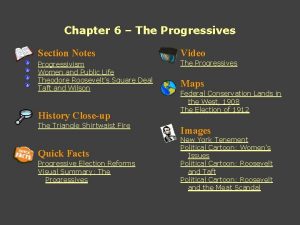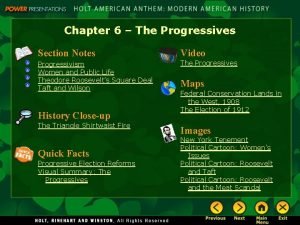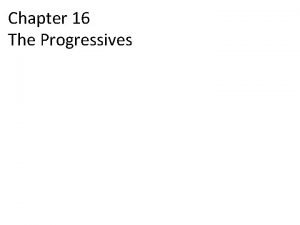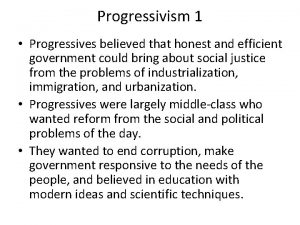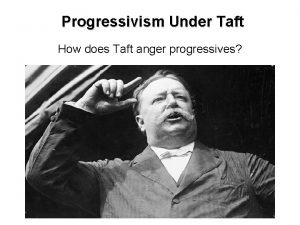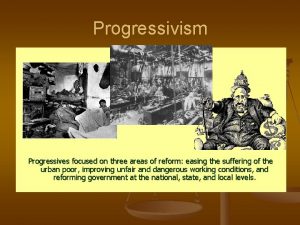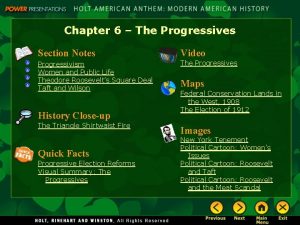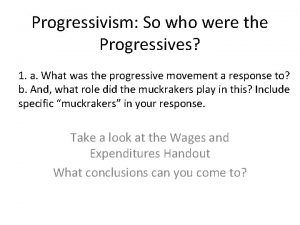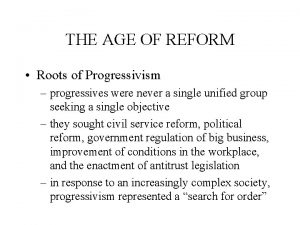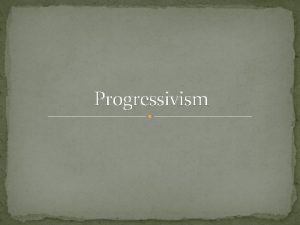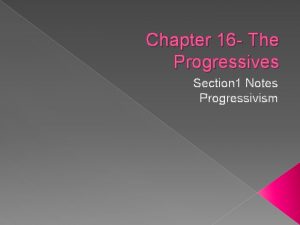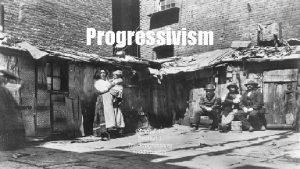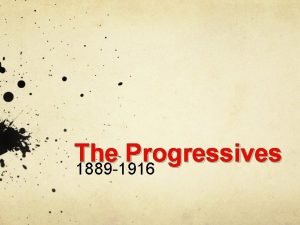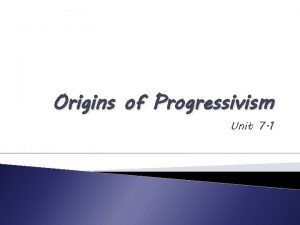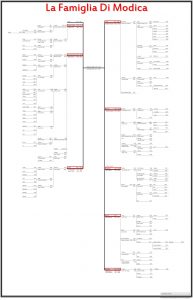The Progressives 1901 1918 Origins of Progressivism Origins
































- Slides: 32

The Progressives 1901 -1918



Origins of Progressivism ► Origins in the reform movements of the 1890 s -Populists. ► Changes in society badly needed - government the proper agent for correcting social and economic ills. ► Gained national momentum with Theodore Roosevelt in 1901. ► Lasted through the Republican presidencies of Roosevelt (1901 -1909), and William Howard Taft (1909 -1913) and the first term of the Democrat Woodrow Wilson (19131917).

► Attitudes and Motives. § Middle-class increasingly alarmed by: ► The rising power of big business. ► The increasing gap between rich and poor. ► The violent conflict between capital and labor. ► The dominance of corrupt political machines. § Minority groups began to call for the end of: ► Jim Crow laws in the South. ► Women’s suffrage.

► Who were the Progressives? § Middle-class residents of U. S. cities. § Doctors, lawyers, ministers, storekeepers and white-collar office workers and middle management. § Worried about American democracy and morality.

§ The Social Gospel an important element of Protestant response to urban poverty. § Diverse groups – Black Americans, union leaders, feminists etc. § Strong political leaders emerged in contrast to the Gilded Age: ►Theodore Roosevelt ►Robert La Follette ►William Jennings Bryan. ►Woodrow Wilson.

► What was the Progressives’ Philosophy? § Historians see Progressivism as another phase in the reform tradition going back to Jefferson (1800 s), Jackson (1830 s), and the Populists (1890 s). § Committed to democratic values and belief that honest government and just laws could improve the human condition.

§ A revolution in thinking - Charles Darwin’s Origin of Species (1859). § Romantic transcendentalism (all knowledge begins with self-knowledge/Individual) gave way to balanced Pragmatism (practice based on theory). § Leading advocates William James and John Dewey. § Argued that the “good” and the “true” could not be known in the abstract as fixed and changeless ideals.

§ People should take a pragmatic, or practical, approach to morals, ideals, and knowledge. § They should experiment with ideas and laws until they found something that worked for the better ordering of society. § Progressives adopted pragmatism because it allowed them to challenge orthodoxy – ie. laissez-faire and individualism.

► Scientific Management. § Frederick W. Taylor – figured out a way to organize factory work in the most efficient manner – assembly line. § Progressives believed this efficiency could be applied to government if put in hands of experts and scientific managers. § Objected to the corruption of political bosses – antidemocratic and inefficient.

► Muckrakers. § In-depth, investigative reporting to expose scandalous conditions. § Henry Damerest Lloyd in 1881 exposed the practices of Standard Oil. § Mc. Clure’s Magazine – combined careful research with sensationalism. § Jacob Riis – a photojournalist- How the Other Half Lives (1890). § Theodore Dreiser’s novels – The Financier and The Titan.



► Decline of Muckraking: § Hard to top the last story. § Banks and advertisers put pressure on editors to tone it down. § By 1910 corporations had developed the field of public relations.

Political Reforms in Cities and States ► Cornerstone of Progressive ideology was faith in democracy. ► Voter Participation. ►Advocated a number of methods for increasing average citizen participation.

§ Australian, or Secret Ballot. ►By 1910 adopted by all states. § Direct Primaries. ► 1903 Robert La Follette put the nominating process in the hands of voters. ►By 1915 all states had some kind of direct primary. § Direct Election of U. S. Senators. ►Nevada first in 1899. ►Seventeenth Amendment.

► Initiative, Referendum, and Recall. § The Initiative – voters can compel the legislature to consider a bill. § The Referendum – allowed citizens to vote on proposed laws printed on their ballots. § The Recall – enabled voters to remove corrupt or unsatisfactory politicians from office. § Social Welfare – lobbied vigorously for better schools, prisons, safety regulations etc.

► Municipal Reform. § City bosses and their corrupt alliances with local businesses (trolley lines, utility companies), were the first targets of Progressive leaders. § Mayor Samuel M. “Golden Rule” Jones – mayor of Toledo Ohio. ►Free kindergartens. ►Night schools. ►Public playgrounds.

► Controlling Public Utilities. § By 1915 2/3 rds of the nation’s cities owned their own water systems. § Many cities came to own gas lines, electric power plants, and urban transportation systems. ► Commissions and City Managers. § 1900 Galveston, Texas first to adopt commission plan of government.

§ Voters elected – fire, police, and sanitation and the mayor. § 1913, Dayton, Ohio had an elected council who hired an expert manager. § By 1923 - 300 cities had adopted the managercouncil plan of municipal governments.

► State Reform. § Progressive battled against corruption in government and business. ► Temperance and Prohibition. § Urban progressives recognized that saloons were often the center of political machines. § Rural reformers thought they could clean up morals and politics in one strike. § Prohibitionist well organized. § By 1915, they had persuaded the legislatures of 2/3 rds of the states to prohibit the sale of alcohol.

Carrie Nation

Political Reform in the Nation ► Theodore Roosevelt’s Square Deal. § Believed it was president’s job to set legislative agenda for Congress. ► “Square Deal” for labor. § Anthracite miners struck in 1902. § Threatened to take over mines unless owners agreed to compromise. § Owners finally agreed to 10% wage increase and 9 hour day.

► Trust-busting. § First president to enforce the Sherman Anti-Trust Act of 1890. § Roosevelt broke up a railroad combination – Northern Securities Company. § SC upheld Roosevelt’s action in 1904. § Roosevelt took antitrust action against Standard Oil and 40 other corporation. § Made a distinction between “good” trusts and “bad” trusts.

► Railroad Regulation. § Persuaded Congress to strengthen regulatory powers of the Interstate Commerce commission. § Elkins Act (1903) – greater authority to prevent rebates. § Hepburn Act (1906) – Could fix “just and reasonable” rates for railroads.

► Consumer ► The Protection. Jungle – Upton Sinclair. § Led to the passage of: ►The Pure Food and Drug Act – forbade manufacture, sale, and transportation of adulterated or mislabeled foods and drugs. ►Meat Inspection Act – federal inspectors to meet minimum standards of sanitation.

► Conservation. § Made repeated use of the Forest Reserve Act of 1891 to set aside 150 million acres of federal land. § 1902, Roosevelt won passage of the Newlands Reclamation Act – provided money from the sale of public lands for irrigation projects in western states. § National Conservation Commission established under Gifford Pinchot of PA.

Howard Taft ► More trust-busting and conservation. ► Payne –Aldrich Tariff – angered Progressives. ► Pinchot – Ballinger Controversy – Taft fired Pinchot after he protested the opening of public lands in Alaska. ► Taft supported conservative candidates over Progressives.

Rise of the Socialist Party ► More radical reforms than the Progressives. ► Public ownership of railroads, utilities, and major industries such as oil and steel. ► Eugene V. Debs. ► Partnered on some projects but most progressives scared of Socialists. ► Election of 1912 Socialists won 6% of the vote.

Election of 1912 § Taft – Republicans. § Roosevelt – Progressive Republicans (Bull Moose) – New Nationalism. § Woodrow Wilson – Democrats – New Freedom. § Eugene V. Debs – Socialists. ► Republican split vote led to Wilson’s victory.

Woodrow Wilson’s Progressive Program ► Tariff reduction – lowered tariffs for the first time in 50 ► Federal Reserve Act in 1914 – 12 district banks supervised ► Clayton Antitrust Act. Strengthened the Sherman Antitrust ► Federal Trade Commission – empowered to take action years. by a Federal Reserve Board. Act – exempted unions from being categorized as trusts. against any “unfair trade practice” in any business but banking and transportation.
 The origins of progressivism chapter 9 section 1
The origins of progressivism chapter 9 section 1 Ondes mécaniques progressives simulation
Ondes mécaniques progressives simulation Apush populist party
Apush populist party Chapter 20 whose government
Chapter 20 whose government What was one way progressives differed from populists
What was one way progressives differed from populists America comes of age lesson 1 progressives drive reform
America comes of age lesson 1 progressives drive reform What common belief did all progressives share?
What common belief did all progressives share? For progressives points
For progressives points What did progressives stand for
What did progressives stand for Ondes progressives et stationnaires
Ondes progressives et stationnaires The victorian period (1832–1901)
The victorian period (1832–1901) Numberblocks 1901
Numberblocks 1901 Withholding tax contractors
Withholding tax contractors 1896-1901
1896-1901 Victorian age 1832 to 1901
Victorian age 1832 to 1901 Industrialization 1865 to 1901
Industrialization 1865 to 1901 Ceremoniality
Ceremoniality 1901 n. moore street
1901 n. moore street Freud 1901
Freud 1901 Industrialization (1865 to 1901 worksheet answers key)
Industrialization (1865 to 1901 worksheet answers key) British empire 1901
British empire 1901 1837-1901
1837-1901 The victorian period (1832–1901)
The victorian period (1832–1901) Marso 23 1901
Marso 23 1901 Poblogaeth cymru 1901
Poblogaeth cymru 1901 1 decembrie 1918 university
1 decembrie 1918 university Peintre viennois
Peintre viennois 11 listopada 1918 piosenka tekst
11 listopada 1918 piosenka tekst 1918 18 novembris
1918 18 novembris Proiect didactic 1 decembrie ziua nationala a romaniei
Proiect didactic 1 decembrie ziua nationala a romaniei Map of europe in 1918
Map of europe in 1918 Hammer v dagenhart
Hammer v dagenhart Lịch sử hà nội từ năm 1802 đến năm 1918
Lịch sử hà nội từ năm 1802 đến năm 1918
